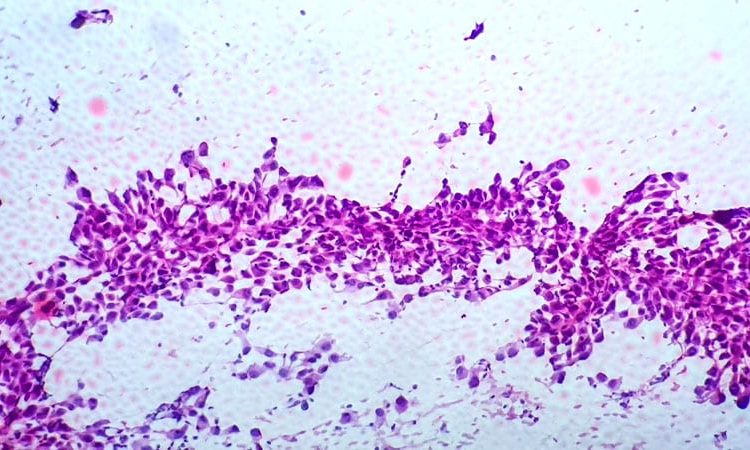The study covered in this summary was published on ssrn.com as a preprint and has not yet been peer reviewed.
Key Takeaway
In patients with advanced/metastatic non-small cell lung cancer (NSCLC) who are ineligible for platinum-based chemotherapy, atezolizumab (Tecentriq) improved overall survival and resulted in fewer severe adverse events compared with single-agent chemotherapy.
Why This Matters
Trials of immunotherapy in NSCLC have mainly been limited to patients who can tolerate standard platinum-based chemotherapy.
Because the role of immunotherapy remains uncertain, older and sicker patients who cannot tolerate platinum-based therapy are generally treated with non-platinum, single-agent chemotherapy.
The new trial shows for the first time that checkpoint inhibition might be a better option for these patients. The results suggest that atezolizumab could be a first-line treatment option for patients with NSCLC who cannot tolerate platinum-based chemotherapy.
Study Design
In this phase 3, open-label trial, investigators randomly assigned 302 patients with stage IIIB/IV NSCLC to atezolizumab (1200 mg every 3 weeks) and 151 to single-agent chemotherapy with either vinorelbine or gemcitabine for 3 or 4 weekly cycles.
Gemcitabine or vinorelbine were chosen as first-line single-agent chemotherapies because they were the only approved agents recommended by treatment guidelines when the study was planned.
Patients were ineligible for platinum-doublet chemotherapy if they had poor performance scores of 2/3, or were age 70 or older with substantial comorbidities. Those with tumors positive for EGFR or ALK alterations were also excluded from the study.
Key Results
Median overall survival was 10.3 months with atezolizumab vs 9.2 months with chemotherapy (hazard ratio [HR], 0.78; P = .028).
The 12-month overall survival rate was 44% in the atezolizumab group vs 39% with chemotherapy; the 24-month overall survival rate was 24% with atezolizumab vs 12% with chemotherapy.
Median progression free survival (PFS) was 4.2 months with atezolizumab and 4.0 months with chemotherapy, a nonsignificant difference.
The 12-month PFS rate was 20% with atezolizumab versus 14% with chemotherapy; and the 24-month PFS rate was 9% with atezolizumab vs 2% with chemotherapy.
Atezolizumab’s survival benefit held across subgroup analyses of PD-L1 expression level, performance status, and histology.
Compared with chemotherapy, atezolizumab was associated with fewer grade 3/4 (16% vs 33%) and grade 5 (1% vs 3%) treatment-related adverse events.
Atezolizumab was also associated with benefits in several health-related quality-of-life measures, including functioning and cancer-related symptom scales.
Limitations
Chemotherapy options were limited to gemcitabine or vinorelbine.
Some investigators may have deemed patients platinum-ineligible based on age, which is not an absolute contraindication.
Disclosures
The trial was funded by Hoffmann-La Roche, maker of atezolizumab through its Genentech subsidiary.
Investigators reported many ties to Roche and other companies, including being speakers, advisors, and researchers for Roche.
This is a summary of a preprint research study, “IPSOS: A Phase III, Global, Multicentre, Open-Label, Randomised, Controlled Study of First-Line Atezolizumab Versus Single-Agent Chemotherapy in Patients with Non-Small Cell Lung Cancer Ineligible for Treatment with a Platinum-Containing Regimen,” led by Siow-Ming Lee of the University College London Hospitals, provided to you by Medscape. The study has not been peer reviewed. The full text can be found at ssrn.com.
M. Alexander Otto is a physician assistant with a master’s degree in medical science and a journalism degree from Newhouse. He is an award-winning medical journalist who has worked for several major news outlets before joining Medscape, and is also an MIT Knight Science Journalism fellow. Email: [email protected].
For more from Medscape Oncology, join us on Twitter and Facebook
Source: Read Full Article
